
🌷 A valediction forbidding mourning poem. A Valediction Forbidding
A Valediction Forbidding Mourning. Donne is famous for writing metaphysical poetry. Many of us know famous example of compass, which is from "A Valediction: Forbidding Mourning". If Donne has gained fame in the world of metaphysical poetry then this poem is the main reason behind it. Donne summarizes the concept of spiritual love in this poem.
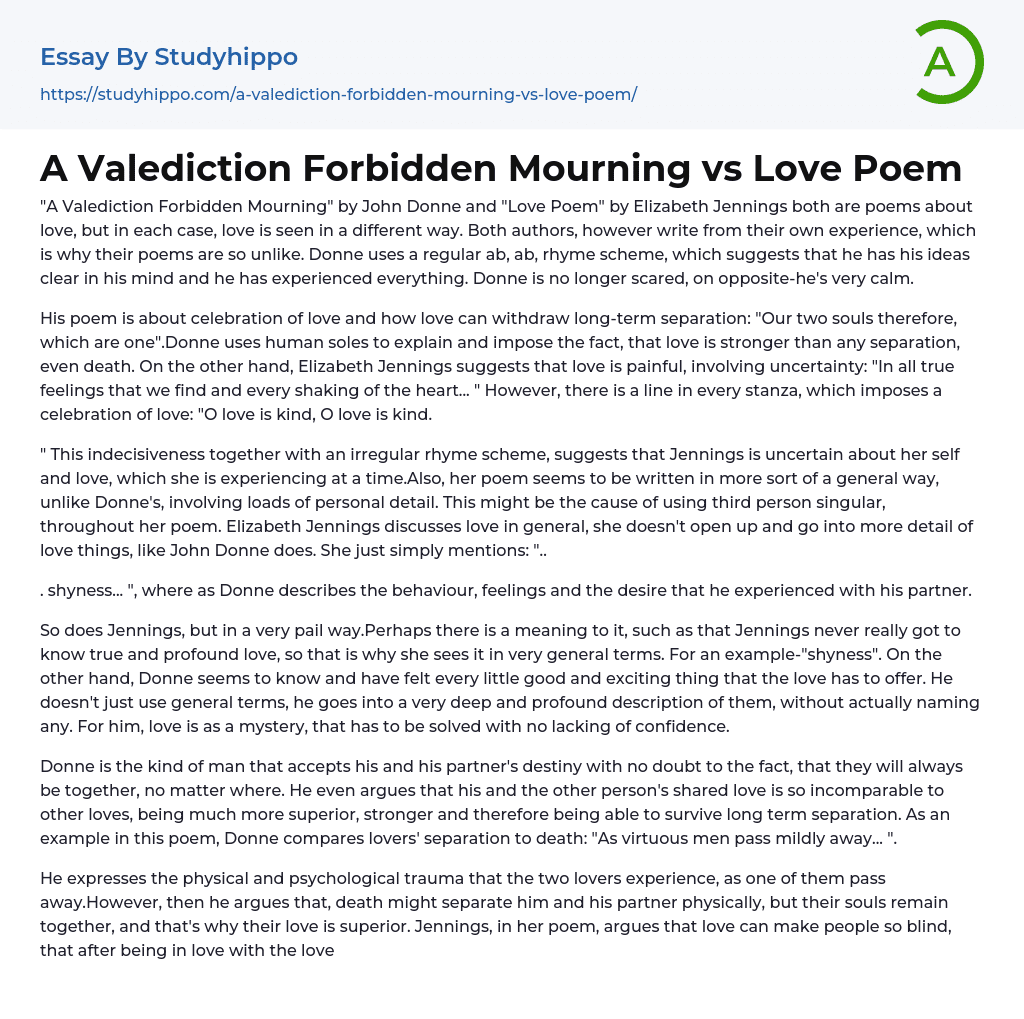
A Valediction Forbidden Mourning vs Love Poem Essay Example
Structure and Form. 'Valediction of Weeping' by John Donne is a three-stanza metaphysical poem that is separated into sets of nine lines. The lines vary greatly in length and but do follow a specific syllabic pattern. The first, fifth, and sixth lines have four syllables, and the second, third, fourth, seventh, and eighth have ten.

🎉 A valediction forbidding mourning poem. Commentary on Valediction
The poem was Written in 1611 right before Donne departed on official business, required by his employers. 'Valediction' means parting or farewell. It is one of his most famous poems, and also.

A Valediction of Weeping by John Donne Poem Analysis
One of the great 'goodbye' poems in the English language, 'A Valediction: Forbidding Mourning' is, in a sense, not a farewell poem at all, since Donne's speaker reassures his addressee that their parting is no 'goodbye', not really. The occasion of the poem was a real one - at least according to Izaak Walton, author of The.
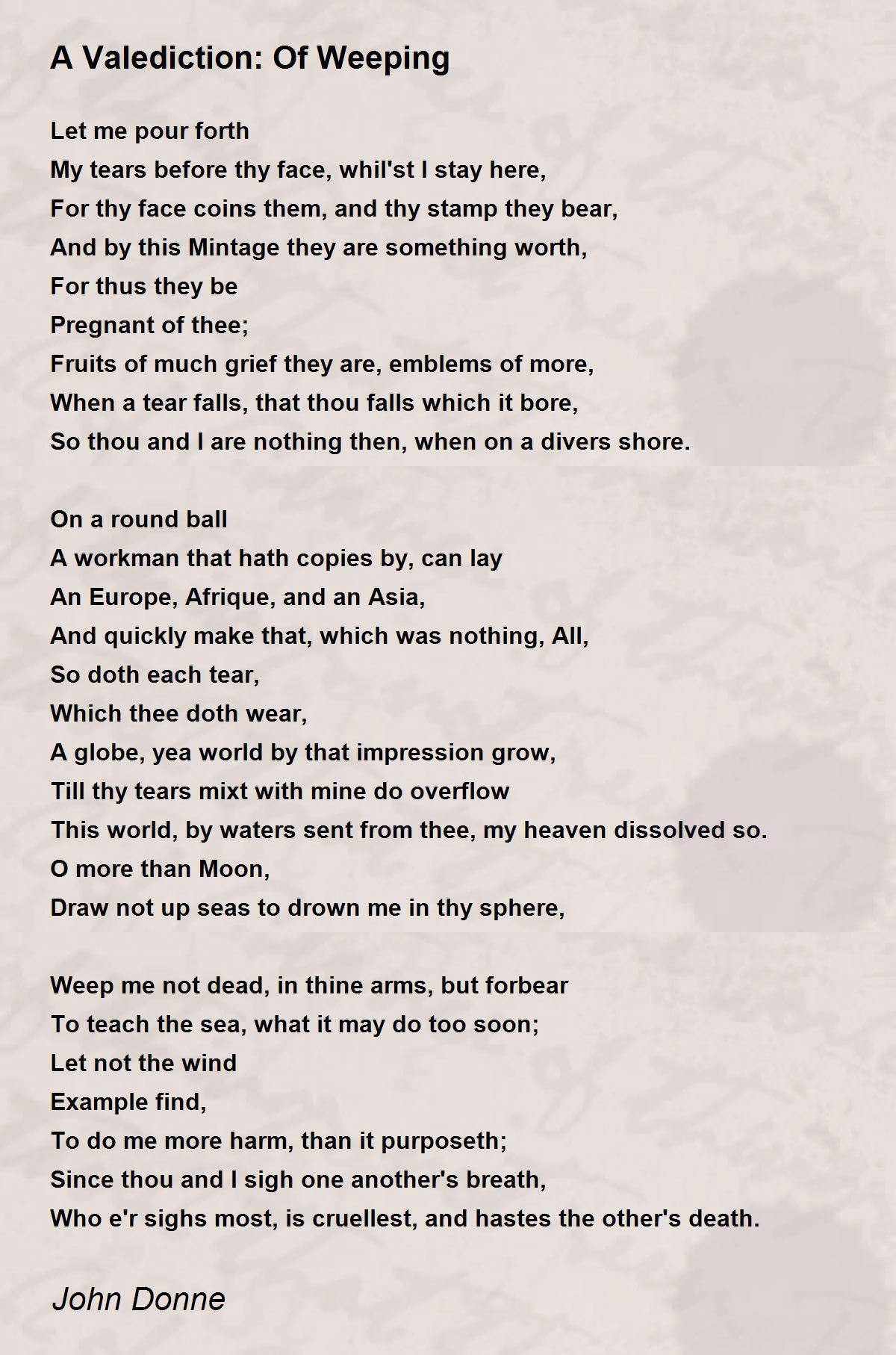
A Valediction Of Weeping Poem by John Donne Poem Hunter
A Valediction: Forbidding Mourning. To tell the laity our love. Though greater far, is innocent. Those things which elemented it. Care less, eyes, lips, and hands to miss. A breach, but an expansion. Like gold to airy thinness beat. And grows erect, as that comes home. And makes me end where I begun.

'Valediction' by Seamus Heaney Pretty words, Inspirational words
Literary critics place the writing of John Donne's A Valediction Forbidding Mourning in the year 1611, when he traveled to Europe. He left behind his pregnant wife, and their separation probably inspired his poem. The title term mourning suggests the sorrow accompanying death, but Donne writes a love poem, not an elegy, and not a….

illhueminati on Twitter "Valediction by Sherman Alexie http//t.co
A summary of "A Valediction: forbidding Mourning" in John Donne's Donne's Poetry. Learn exactly what happened in this chapter, scene, or section of Donne's Poetry and what it means. Perfect for acing essays, tests, and quizzes, as well as for writing lesson plans.
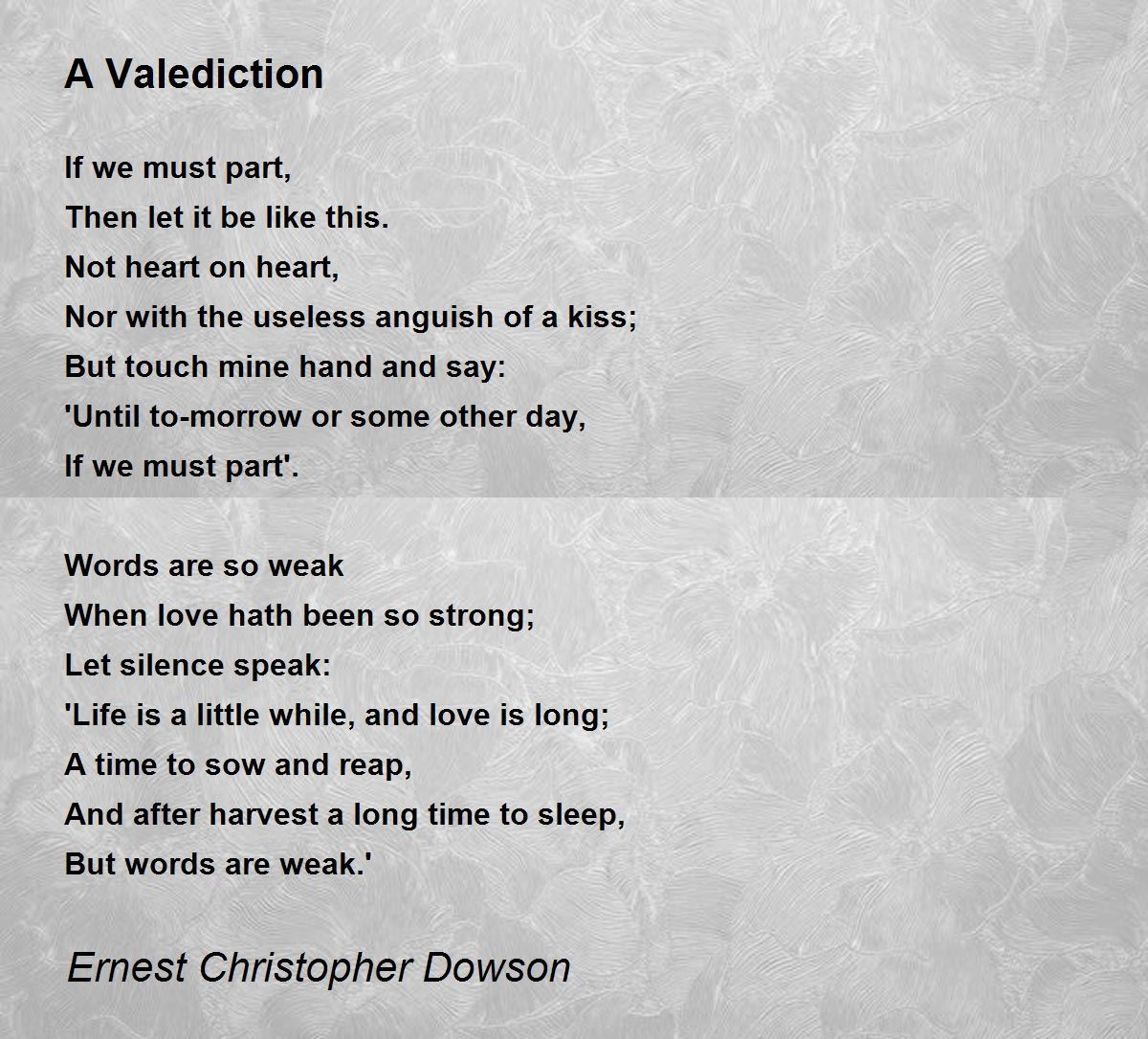
A Valediction Poem by Ernest Christopher Dowson Poem Hunter
Try "translating" Donne's poem into contemporary English. Think about maintaining the emotional pitch of the poem, but feel free to draw on vocabulary, syntax, and images that Donne wouldn't have known. Donne's speaker is performing a valediction—he's saying goodbye. Try writing your own goodbye poem.

A4 Size Parchment Poster Classic Poem John Donne A
This poem was written for Donne's wife, Anne, in either 1611 or 1612. It was penned before he left on a trip to Europe. It was not published until after his death, appearing in the collection Songs and Sonnets."A Valediction: Forbidding Mourning' is divided into sets of four lines, or quatrains. Donne has also structured this piece with a consistent pattern of rhyme, following the scheme.
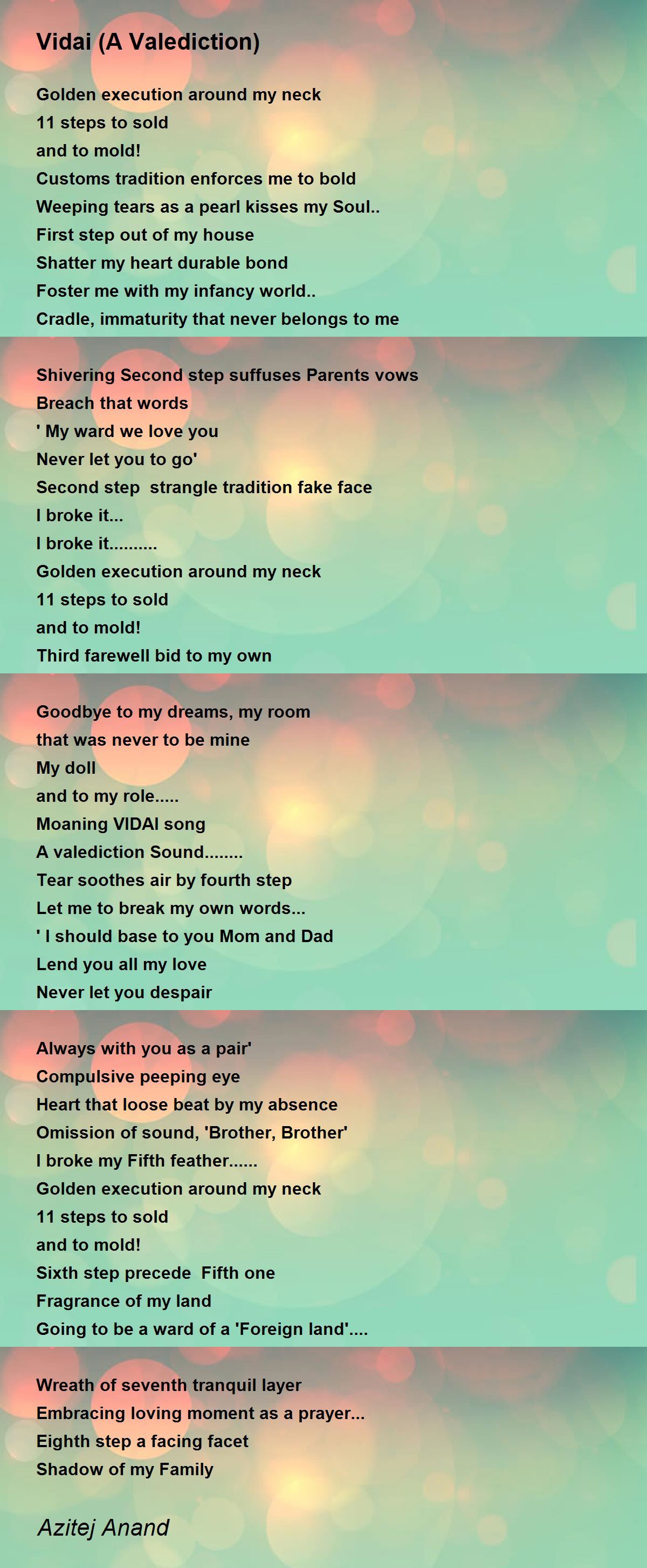
Vidai (A Valediction) Vidai (A Valediction) Poem by Azitej Anand
'A Valediction Forbidding Mourning,' a poem written by the 20th-century feminist poet Adrienne Rich. She is regarded as one of the widely read and influential American poets of her time. This poem explores the basic essence of feminism. It is about a poet's failure to write in a language dominated or influenced by mostly men.
A Valediction Forbidding Mourning Summary and Analysis Good Study
Love, the poem suggests, can make two people into each other's worlds, and thus turn a farewell into the end of the world. Like nearly all of Donne's poetry, "A Valediction: Of Weeping" wasn't published until after Donne's death; it first appeared in the posthumous collection Poems (1633). Read the full text of "A Valediction: Of Weeping"
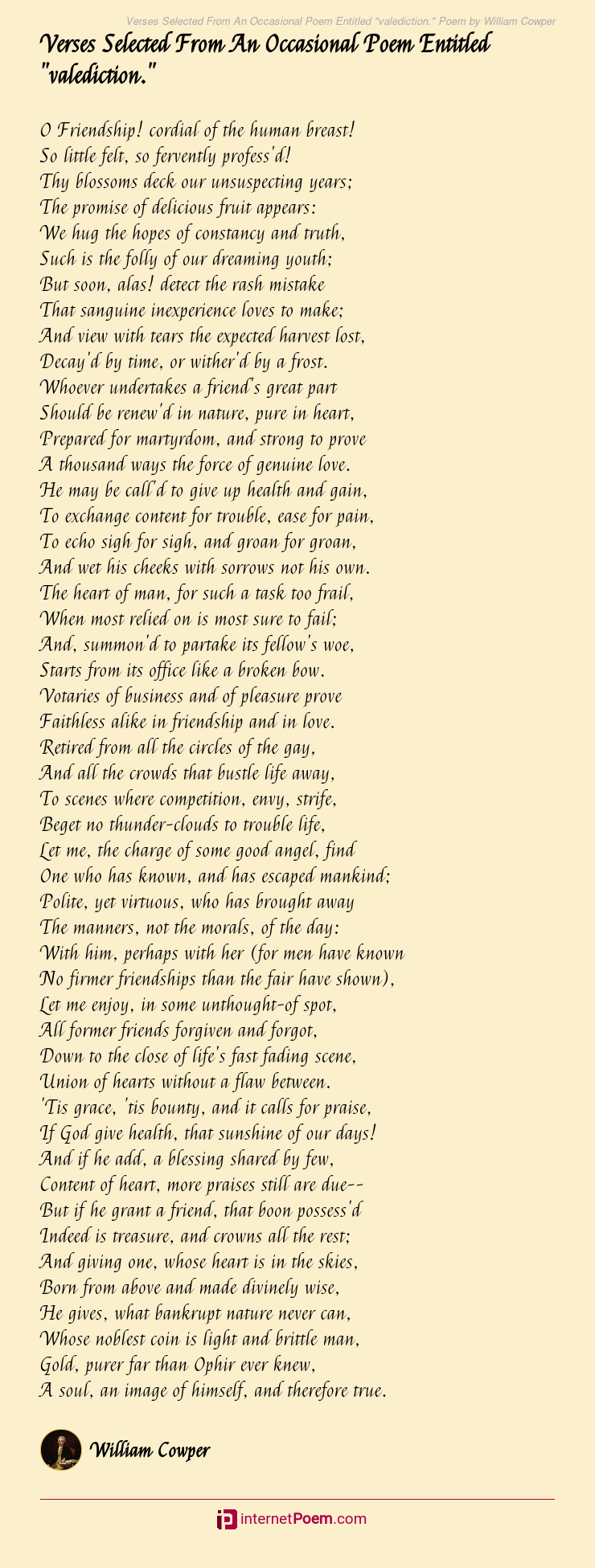
Verses Selected From An Occasional Poem Entitled "valediction." Poem by
A Valediction: Forbidding Mourning, poem by John Donne, published in 1633 in the first edition of Songs and Sonnets. It is one of his finest love poems, notable for its grave beauty and Metaphysical wit. The narrator of the poem hopes to avoid a tearful departure from his mistress and explains to.

A Valediction Forbidding Mourning Critical Analysis Literary English
A Valediction: Forbidding Mourning Summary. "A Valediction: Forbidding Mourning" is a poem by John Donne in which the speaker directly addresses his lover to say farewell and to encourage her not.
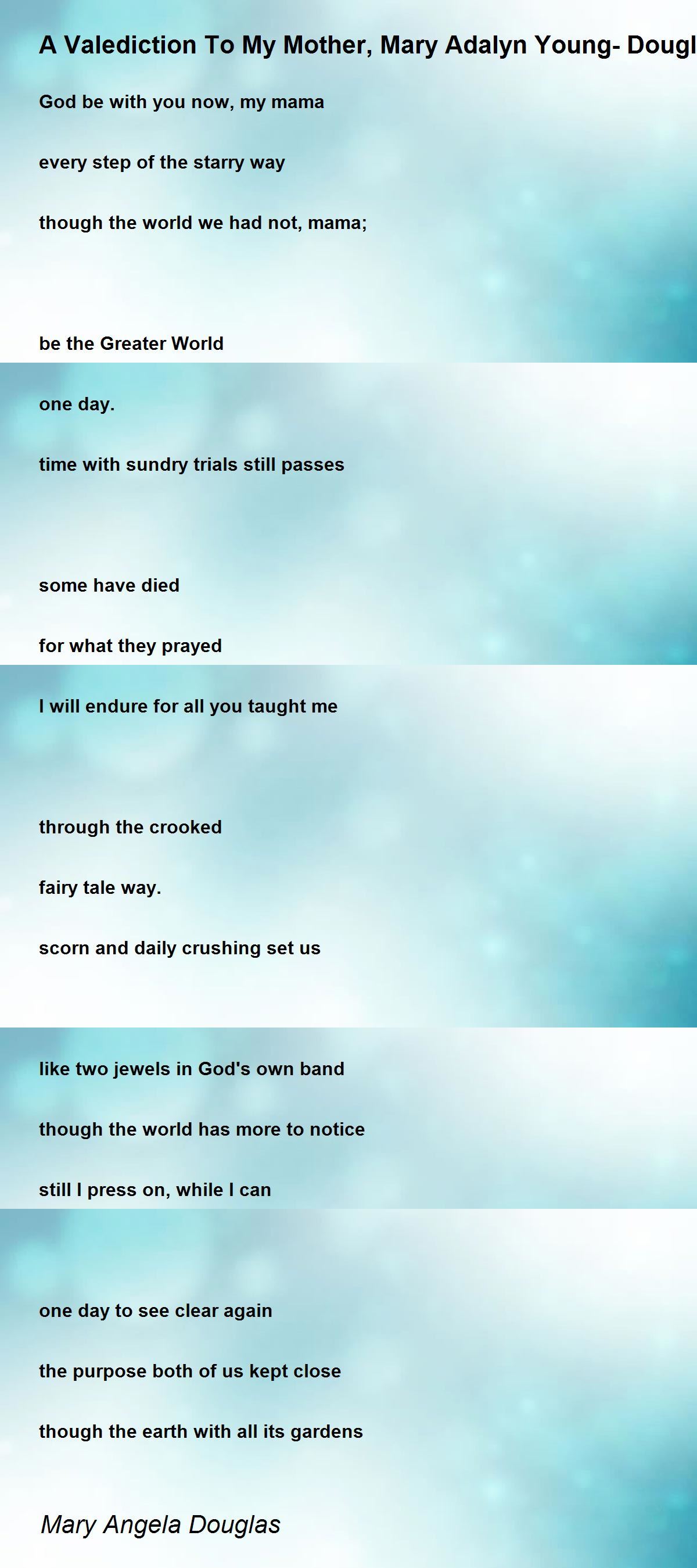
A Valediction To My Mother, Mary Adalyn YoungDouglas Poem by Mary
John Donne probably wrote "A Valediction: of Weeping" after he met his future wife, Ann More, and before he took holy orders and turned most of his authorial energies to sermons and spiritual meditations. We can't be sure about the timing, though; while we have Donne's biography and his poems, aligning the two is tricky. We know that Donne wrote poems only for himself and a close.
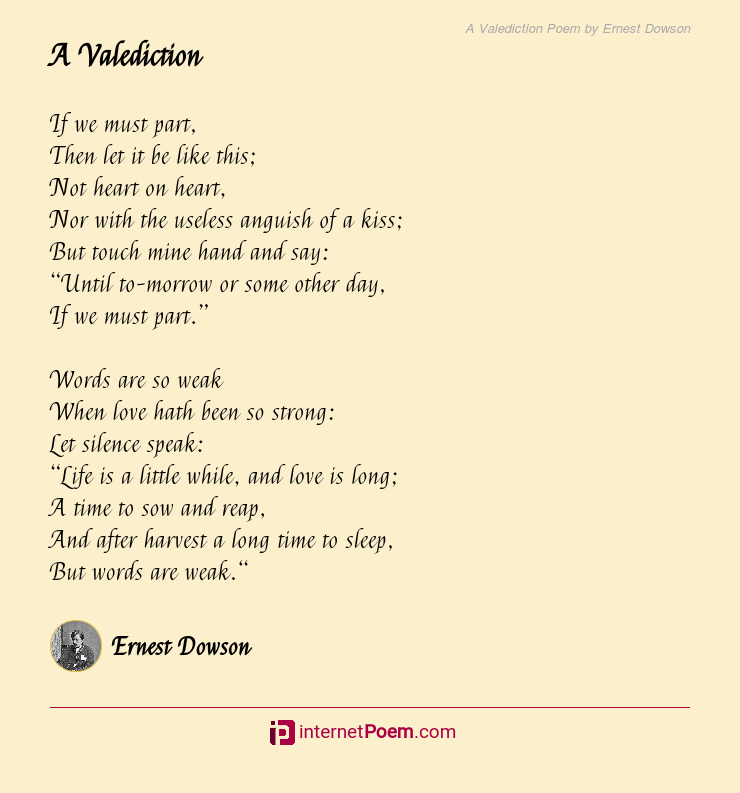
A Valediction Poem by Ernest Dowson
A Valediction: Forbidding Mourning. " A Valediction: Forbidding Mourning " is a metaphysical poem by John Donne. Written in 1611 or 1612 for his wife Anne before he left on a trip to Continental Europe, "A Valediction" is a 36-line love poem that was first published in the 1633 collection Songs and Sonnets, two years after Donne's death. Based.
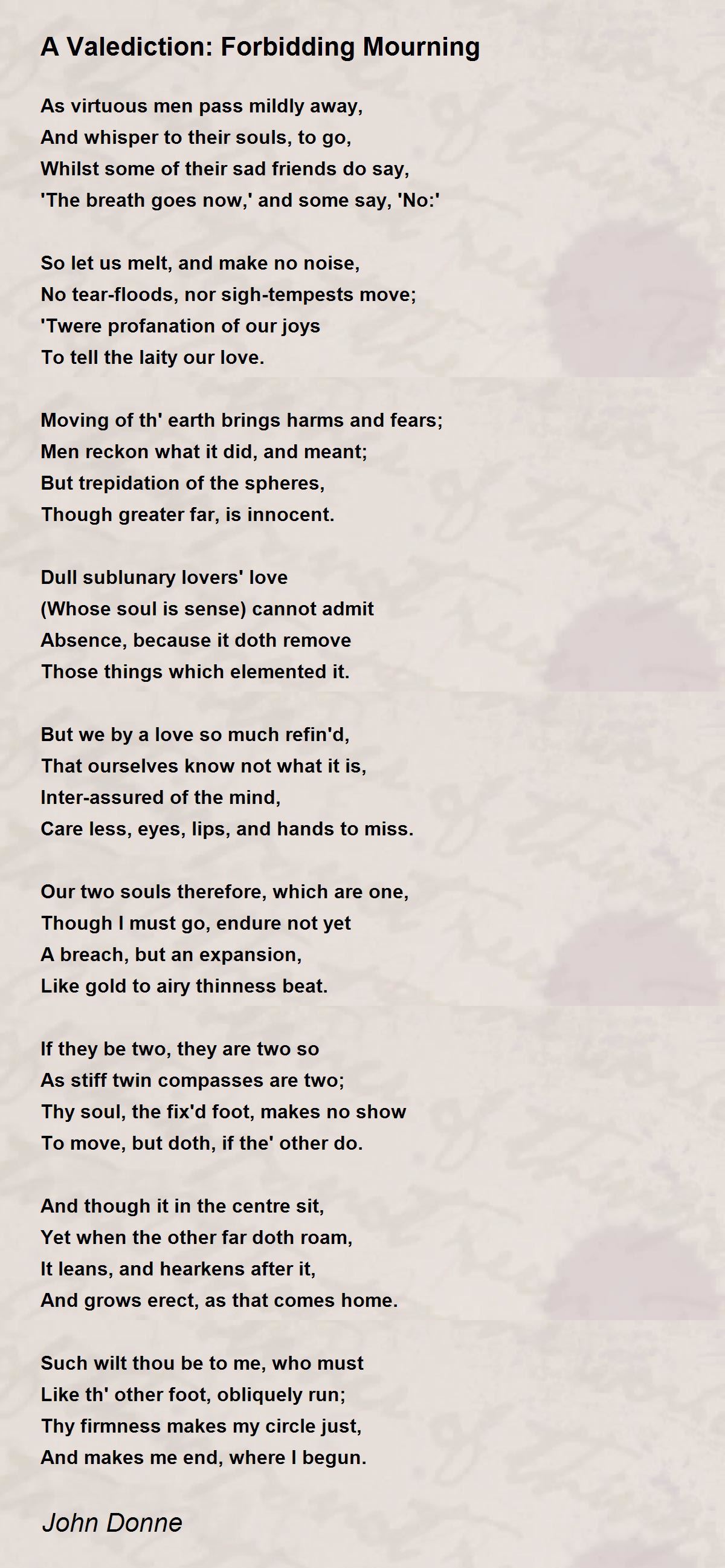
A Valediction Forbidding Mourning A Valediction Forbidding Mourning
The poem is widely celebrated as both a prime example of metaphysical poetry and as a classic love poem. Songs and Sonnets (1933) includes several valediction poems: "A Valediction of My Name in the Window," "Valediction of the Book," "A Valediction of Weeping," and "A Valediction: Forbidding Mourning." Among these several instances of this poetic mode, "A Valediction.